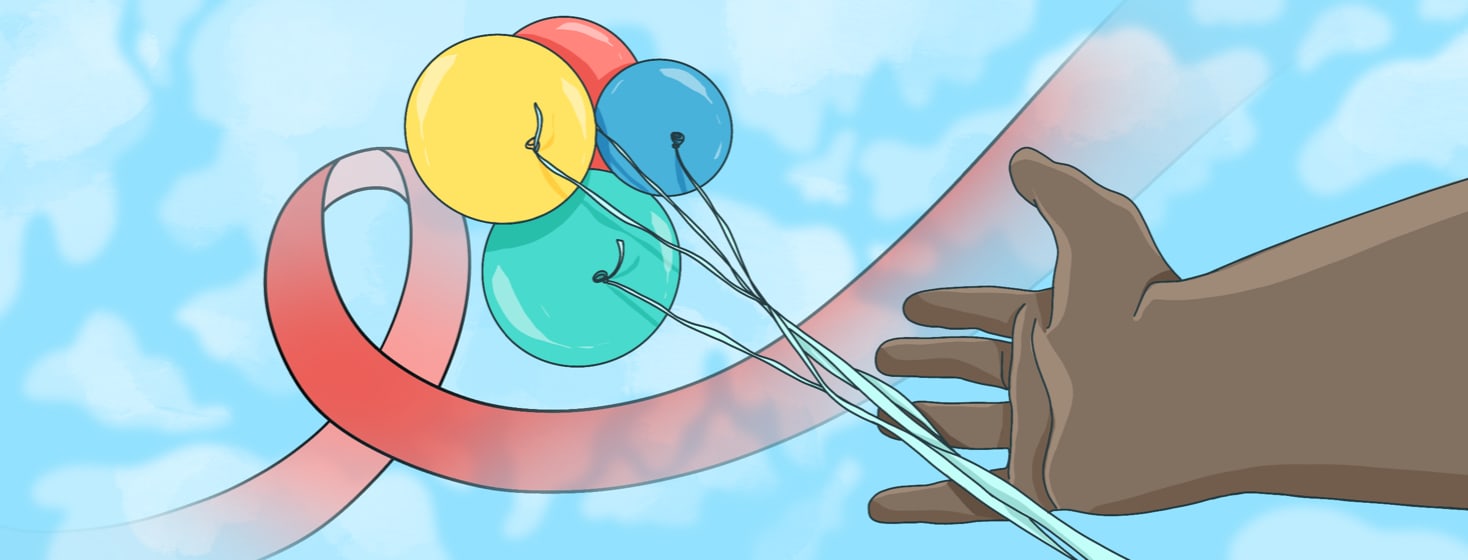What is AIDS Survivor Syndrome?
People living with HIV/AIDS for many years often have specific needs. They may face different challenges than long-term survivors of other health conditions.
In the early days of the AIDS epidemic, before effective medicines were developed, people often died of AIDS-related-illness. Those who made it through this period while watching loved ones lose their lives to the disease may now have AIDS Survivor Syndrome (sometimes called ASS). Symptoms of AIDS Survivor Syndrome include:1,2
- Anxiety
- Depression
- Nervousness
- Anger
- Irritability
- Loss of hope for the future
- Low self-esteem
- Substance misuse
- Isolation
- Feelings of guilt
- Thoughts of suicide
AIDS Survivor Syndrome can affect those who are HIV-positive and HIV-negative. Some compare it to post-traumatic stress disorder (PTSD), which happens to people who have endured or witnessed a traumatic event. It can trigger difficult mental and emotional symptoms that impact your life.3
What research shows about AIDS Survivor Syndrome
There is not much published research examining AIDS Survivor Syndrome. But it is an area that scientists are beginning to study.1
One study looked at long-term health data of gay men with and without HIV. Here are some of the results:2
- 27 percent said more than 10 close connections have died of AIDS
- 35 percent said they still grieve those who have died
- 7 percent experienced deep grief over the losses
- 3 percent grieve the losses nearly every day
- 49 percent did not expect to live as long they have
Around half of the men who took part in the study reported having depression, anxiety, trouble sleeping, anger, and other symptoms in the past 6 months.
Physical, mental, and emotional health as a long-term HIV/AIDS survivor
Another aspect of living with HIV/AIDS in the long term is growing old with the illness. Or, if you were diagnosed as a young child, you may be in your 20s or 30s with HIV/AIDS. Having a disease like HIV/AIDS for decades comes with unique challenges.
HIV treatment
Those with HIV who received early treatment drugs now live with serious side effects. You may have nerve damage. Some long-term survivors also have a condition called lipodystrophy, which involves the life-threatening loss or gain of body fat.1
Treatment fatigue is another concern. You could have trouble sticking to your treatment regimen after taking it for so many years.
Other illnesses
Older adults living with HIV are more vulnerable to certain illnesses, including:1
- Heart disease
- Hepatitis C
- Liver disease
- Problems with thinking, movement, mood, and behavior
- Cancer
- Bone loss
Featured Forum
View all responsesSupport for long-term AIDS survivors
There are groups and projects focused on the needs of long-term HIV survivors, including:1
- Let's Kick ASS—AIDS Survivor Syndrome empowers long-term HIV survivors to network with others living with the illness to improve their quality of life.
- The Reunion Project shares stories from long-term survivors and hosts summits around the country.
- The National Resource Center on HIV & Aging supports older adults with HIV through research, education, and advocacy.
- The Graying of AIDS is a documentary project featuring portraits and interviews with people worldwide with long-term HIV/AIDS.
June 5 is HIV Long-Term Survivors Awareness Day. This day recognizes the “needs, issues, and journeys” of people who received an HIV diagnosis before the arrival of highly active antiretroviral therapy or HAART.

Join the conversation